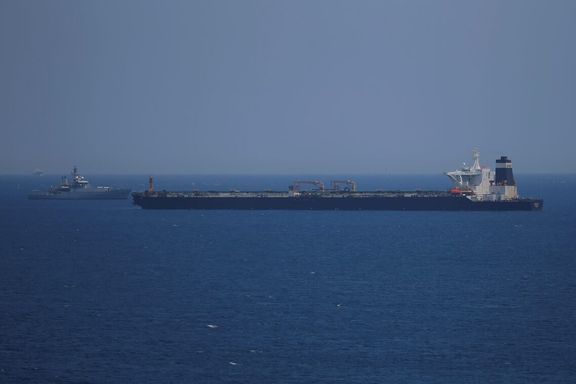The organization United Against Nuclear Iran (UANI) said 17% of a fleet of vessels it suspects of smuggling sanctioned Iranian oil are currently flying the Panamanian flag.
In a statement, UANI described Panama’s maritime registry as the “most commonly used national registry among this shadow fleet,” citing tactics such as flag-hopping, fake ownership records, and manipulation of automatic identification systems (AIS).
“Panama has long been the flag of choice for sanctions violators and oil smugglers,” said UANI CEO Mark D. Wallace. “We’ve repeatedly provided the AMP [Panama Maritime Authority] with names, evidence, and warnings. Their lack of consistent, proactive enforcement continues to undermine global sanctions compliance.”
UANI’s tanker tracker lists 542 foreign-flagged vessels suspected of involvement in sanctioned oil shipments from Iran.
Following mounting pressure, Panama in March deregistered 107 vessels and is currently reviewing 18 more, acting under Executive Decree No. 512, which allows authorities to remove ships owned by sanctioned entities from its registry.
The allegations come as Iranian officials publicly celebrate rising energy production and oil exports.
Oil Minister Mohsen Paknejad, speaking during the inauguration of Iran’s 29th Oil, Gas, Refining and Petrochemical Exhibition in Tehran, said the country has boosted oil output by 150,000 barrels per day under the current administration, with daily gas production up 30 million cubic meters and petroleum refining capacity growing by 180,000 barrels per day.
Paknejad added that gasoline and diesel output has increased by 7 million and 8 million liters per day, respectively, despite what he called intensifying sanctions. “Oil exports are continuing at the highest possible level,” he said.
He added that Iran plans to complete over 30 major oil and gas projects by March 2026, representing $10 billion in investment, which he said will further raise daily oil production by 250,000 barrels and gas by 30 million cubic meters.
He also said Iran needs over $20 billion in annual funding to maintain and expand production, adding that the ministry is pursuing innovative financing tools and encouraging greater private sector participation to meet these goals.
While Iran has not publicly addressed the UANI report, it has consistently rejected the legality of unilateral US sanctions and insists that its energy exports comply with international law.
The Panama Maritime Authority has not yet responded to the latest allegations. However, officials have previously defended their compliance with international norms, citing recent regulatory changes intended to strengthen enforcement.
In spite of sanctions, Iran's oil sales have continued to grow in recent years.
In October, the Energy Information Agency (EIA) in the US reported that Iran's oil sales reached $144 billion in the first three years of the Biden administration, $100 billion more than what Tehran exported in the last two years of the Trump administration when the oil sanctions were in effect.
In March, the US seized multiple Iranian oil tankers in the Persian Gulf which were using forged Iraqi documents.
Speaking on state television, Iraq's Oil Minister Hayan Abdel-Ghani said: "We received some verbal inquiries about oil tankers being detained in the Persian Gulf by US naval forces carrying Iraqi shipping manifests.
"It turned out that these tankers were Iranian ... and were using forged Iraqi documents. We explained this to the relevant authorities with complete transparency and they also confirmed this."









